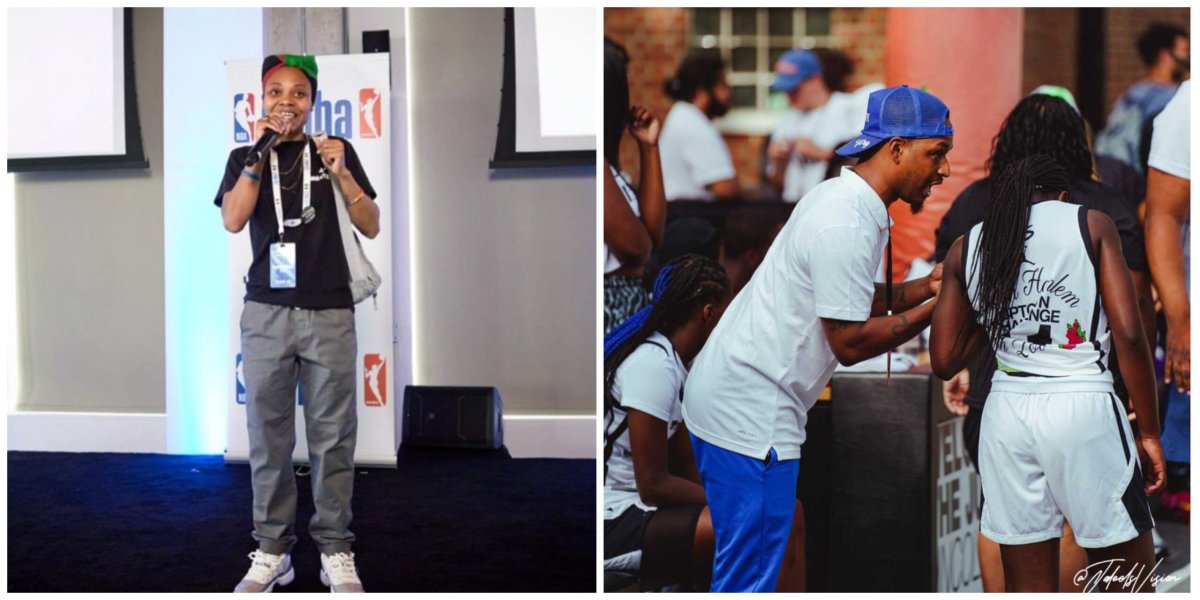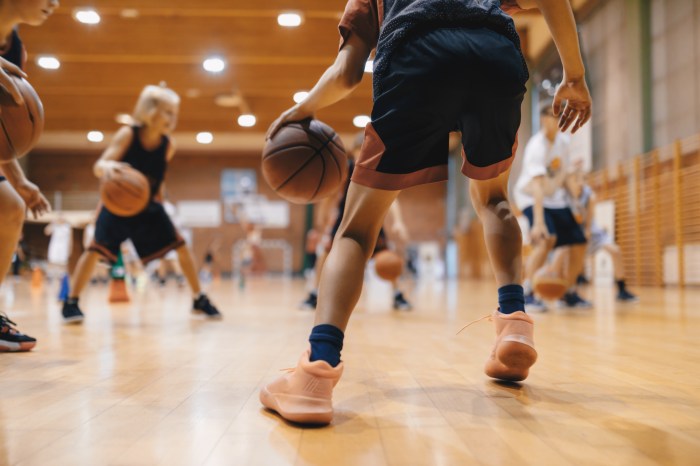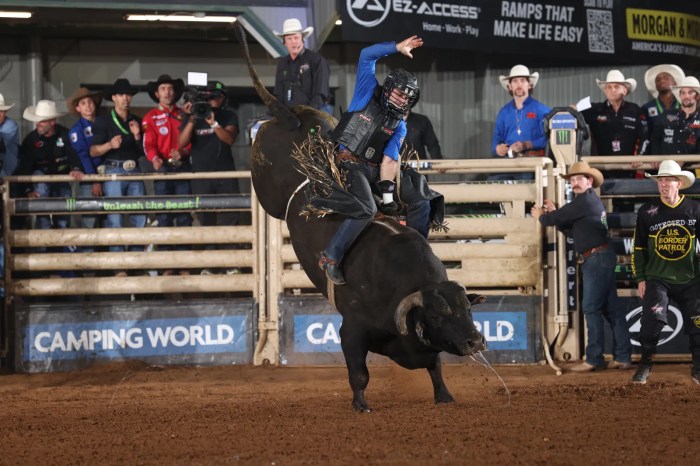MVPs in their communities, two Brooklyn coaches are among the finalists for the Jr. Knicks Coach of the Year program.
The initiative seeks to spotlight coaches who make positive impacts on young basketball players, both on the court and in their communities. The winner will get $20,000 and become the New York Knicks representative in the Jr. NBA’s National Coach of the Year Program.
Meet Dominique Williams
Brownsville coach Dominique Williams was the first Brooklyn finalist to be announced. Williams is the founder of Get Fit Fly Right, a system focused on mental health for athletes and coaches.
Williams, known as Coach D, had to step away from the game after undergoing knee surgery. Soon after, she got right back in through coaching and quickly realized that “there was a need for wellness in basketball.”
“The transformation started with me,” said Williams. “As a coach, I once made a man cry with over-aggression. I went to him wanting to motivate him and started shouting, telling him “I need you to focus,” and he started crying. At the end of the game, I went to apologize and asked him what I could have done better. He said he didn’t like yelling. He left football and took on basketball so he wouldn’t get yelled at. We immediately changed how we communicated and I started to notice he was amazing on defense because football had given him great footwork.”
After years of coaching, Williams realized it wasn’t just the players she needed to work with, but with other coaches as well.
“Basketball isn’t just basketball anymore,” she said. “There isn’t ‘leave your emotions off the court’ anymore. Trauma and anxiety accompany the players and the coaches as well and many coaches don’t always have the tools to deal with it. We are asking them to be empathetic, responsible and exemplary. The biggest challenge for coaches is navigating their own well-being while trying to reach their players. Coaches are coming out of a pandemic as well.”
Williams says social media has changed the way athletes are seen and that the pressure is now more than ever.
“With admiration comes idealization,” she said. “Our young people don’t play for the sake of playing. Back in the day, we used to be motivated to practice different sports and now young people are being rated at very early ages and only a few make it to the NBA. If they don’t make it, they need to get in a good place to change ideas.”
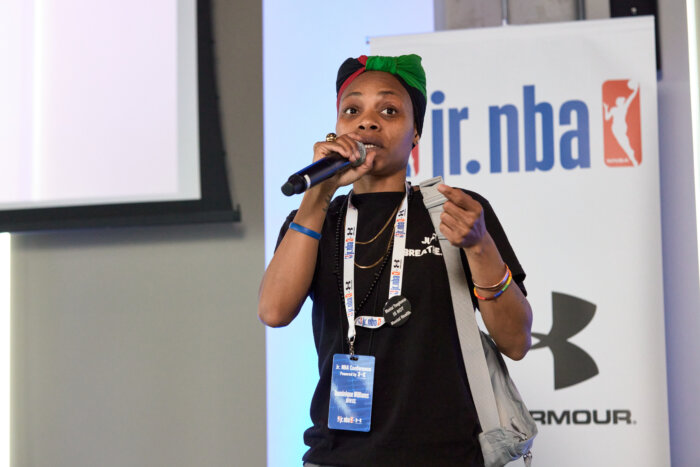
With that in mind, Williams created a full curriculum for coaches and athletes with different modules and courses on mental hygiene.
“Mental health is a state, mental hygiene is practice,” she said. “Mental health is not a one-size-fits-all. The assumption is that all athletes can navigate adversity, but each athlete has a different story. Mental hygiene must start somewhere personal, so the first step is self-awareness. The individuals can then develop a system and when that system is practiced continuously it eventually is normalized and that is how emotional intelligence develops.”
William’s method starts with breathing exercises, meditation and words of affirmation. She even recommends outings for coaches to spend time off the court with the players, going out for pizza, playing board games or even coloring wearing their own clothes and not their uniforms. The program also offers guidance for coaches to be emotionally supportive and to listen to their players.
“A lot of coaches would agree that face value has to come with deep talks and with focusing on the player as a human and on their needs,” she said. “I’ve found that some men coaches don’t know how to talk to their female players about anything other than basketball. Female athletes want relationships, they need to feel safe. Meanwhile, male athletes want respect, they need to feel seen. Just the opposite of the same coin.”
She has found that coaches can directly enhance a player’s performance through mental hygiene.
“Dribbling teaches how to breathe deep and when you own your breathing, nothing can steal you peace,” she said. “Rebound and boxing out helps to identify negative thoughts and redirect them. The most common is self-doubt. When their shooting is off, they start thinking they suck, or ‘I am not who I thought I was.'”
If she wins the funds, Williams told Brooklyn Paper she plans to use them to make her program into a software so that it will be accessible to more people.
Meet Cortney Lovick
In Downtown Brooklyn, another beloved basketball coach has a different idea.
Cortney Lovick currently works as a basketball coach for girls and boys at Longwood Preparatory Academy in the Bronx and at New Heights Elementary School in Brooklyn. He was nominated to be coach of the year by many people, including the principal at Longwood Prep, where parents, players and colleagues agree that he’s stood out for fostering an inclusive and supportive team environment for kids of all backgrounds.
“I’ve never turned anyone away,” he said. “There is crime and poverty in the communities I work in and so, people are cautious to open up, but I know they think, ‘Well, if the coach trusts them, I can trust them,’ and they come together.”
Years into coaching, Lovick’s impact has transcended time.
“Now I see kids I coached in the past, they are in their early 20s now and they are part of each other networks,” he said. “People need to understand that is the most helpful and important thing out there.”
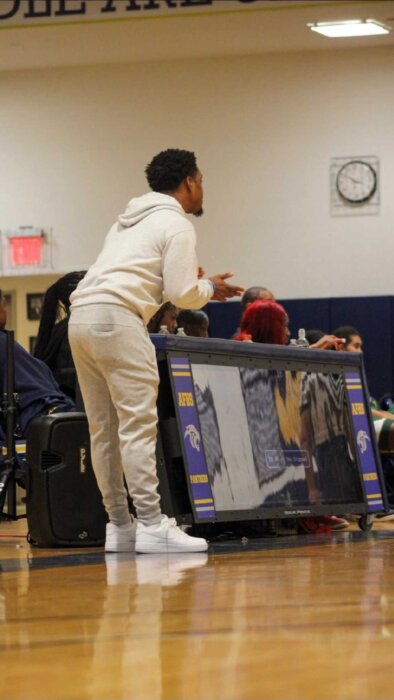
Lovick uses basketball to teach players values that will serve them as parts of society.
“Through this game, they learn the importance of being on time, the importance of responsibility, even to work with people they don’t like,” he said. “They also see that life is up and down. Some people have a bad day, just like players have a bad game or a bad season, but as long as they continue to work, they can get back on track.”
One of the biggest challenges for him as a coach is to show both athletes and their parents how to prioritize discipline in order to achieve success.
“School and grades come first,” he said. “The grind of both obtaining academic knowledge and playing basketball takes a lot of sacrifices, but the rewards are long-lasting. There are vacations you gotta miss and birthday parties you won’t go to, but school and games are important to get into college and to change your life.”
If he were to win, Lovick said he would put the money from the Knicks program towards creating a summer camp. He wants to feed players nutritious lunches, bring in guest speakers who can share how they achieved their goals through hard work and basketball and create a safe space.
“It’s really great that my main job is to teach before coaching,” he said.
The winner of the Jr. Knicks Coach of The Year program will be announced later this month. All finalists — including Williams and Lovick — will walk away with $2,000, regardless of the outcome.
The program is supported financially by the Hospital for Special Surgery, the number-one ranked hospital in the U.S. for orthopedics.


